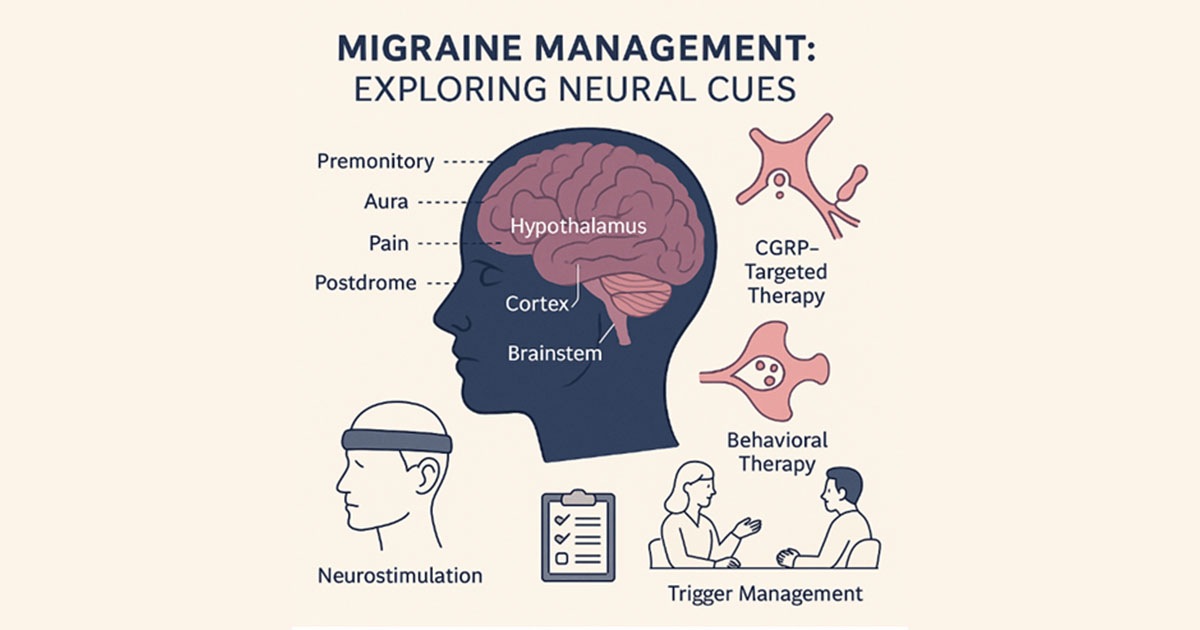- 2.8Impact Factor
- 5.6CiteScore
- 17 daysTime to First Decision
Migraine Management: Exploring Neural Clues
This special issue belongs to the section “Neuropharmacology and Neuropathology“.
Special Issue Information
Dear Colleagues,
Migraine is the second most disabling neurological disorder that affects over one billion people globally. Once considered primarily vascular, migraine is a complex neurovascular disorder involving both cortical and subcortical pathways. Recent advances have uncovered early neural cues, such as hypothalamic activation, abnormal thalamocortical processing, role of inflammation and mast cell activation, thus offering new targets for intervention.
This Special Issue explores cutting-edge research into the neural mechanisms, biomarkers, and multidimensional therapies transforming migraine care. We highlight translational research and advances in pharmacological management, but also non-pharmacological treatments such as neuromodulation, wearable neurotech, and AI-based forecasting tools, behavioral therapies—such as cognitive behavioral therapy (CBT), biofeedback, and relaxation training—and structured trigger management, which remain foundational in preventing migraine chronification. The integration of neural insights with behavioral and technological interventions marks a new era in personalized migraine care.
We invite contributions that bridge translational neuroscience with clinical application, highlighting novel diagnostic and therapeutic ideas along with non-drug pathophysiological-targeted treatment strategies highlighting the complex neural inputs and outputs of the migraine brain. We encourage submission of the following paper types: original papers, systematic reviews, short reports, clinical trials, perspectives, communications, etc.
Dr. Soma Sahai-Srivastava
Guest Editor
Manuscript Submission Information
Manuscripts should be submitted online at www.mdpi.com by registering and logging in to this website. Once you are registered, click here to go to the submission form. Manuscripts can be submitted until the deadline. All submissions that pass pre-check are peer-reviewed. Accepted papers will be published continuously in the journal (as soon as accepted) and will be listed together on the special issue website. Research articles, review articles as well as short communications are invited. For planned papers, a title and short abstract (about 250 words) can be sent to the Editorial Office for assessment.
Submitted manuscripts should not have been published previously, nor be under consideration for publication elsewhere (except conference proceedings papers). All manuscripts are thoroughly refereed through a single-blind peer-review process. A guide for authors and other relevant information for submission of manuscripts is available on the Instructions for Authors page. Brain Sciences is an international peer-reviewed open access monthly journal published by MDPI.
Please visit the Instructions for Authors page before submitting a manuscript. The Article Processing Charge (APC) for publication in this open access journal is 2200 CHF (Swiss Francs). Submitted papers should be well formatted and use good English. Authors may use MDPI's English editing service prior to publication or during author revisions.
Keywords
- migraine management
- translational research
- non-drug treatment
- neural cues
- non-pharmacological treatment

Benefits of Publishing in a Special Issue
- Ease of navigation: Grouping papers by topic helps scholars navigate broad scope journals more efficiently.
- Greater discoverability: Special Issues support the reach and impact of scientific research. Articles in Special Issues are more discoverable and cited more frequently.
- Expansion of research network: Special Issues facilitate connections among authors, fostering scientific collaborations.
- External promotion: Articles in Special Issues are often promoted through the journal's social media, increasing their visibility.
- e-Book format: Special Issues with more than 10 articles can be published as dedicated e-books, ensuring wide and rapid dissemination.

